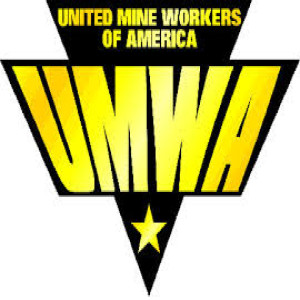
- Podcast Features
-
Monetization
-
Ads Marketplace
Join Ads Marketplace to earn through podcast sponsorships.
-
PodAds
Manage your ads with dynamic ad insertion capability.
-
Apple Podcasts Subscriptions Integration
Monetize with Apple Podcasts Subscriptions via Podbean.
-
Live Streaming
Earn rewards and recurring income from Fan Club membership.
-
Ads Marketplace
- Podbean App
-
Help and Support
-
Help Center
Get the answers and support you need.
-
Podbean Academy
Resources and guides to launch, grow, and monetize podcast.
-
Podbean Blog
Stay updated with the latest podcasting tips and trends.
-
What’s New
Check out our newest and recently released features!
-
Podcasting Smarter
Podcast interviews, best practices, and helpful tips.
-
Help Center
-
Popular Topics
-
How to Start a Podcast
The step-by-step guide to start your own podcast.
-
How to Start a Live Podcast
Create the best live podcast and engage your audience.
-
How to Monetize a Podcast
Tips on making the decision to monetize your podcast.
-
How to Promote Your Podcast
The best ways to get more eyes and ears on your podcast.
-
Podcast Advertising 101
Everything you need to know about podcast advertising.
-
Mobile Podcast Recording Guide
The ultimate guide to recording a podcast on your phone.
-
How to Use Group Recording
Steps to set up and use group recording in the Podbean app.
-
How to Start a Podcast
-
Podcasting
- Podcast Features
-
Monetization
-
Ads Marketplace
Join Ads Marketplace to earn through podcast sponsorships.
-
PodAds
Manage your ads with dynamic ad insertion capability.
-
Apple Podcasts Subscriptions Integration
Monetize with Apple Podcasts Subscriptions via Podbean.
-
Live Streaming
Earn rewards and recurring income from Fan Club membership.
-
Ads Marketplace
- Podbean App
- Advertisers
- Enterprise
- Pricing
-
Resources
-
Help and Support
-
Help Center
Get the answers and support you need.
-
Podbean Academy
Resources and guides to launch, grow, and monetize podcast.
-
Podbean Blog
Stay updated with the latest podcasting tips and trends.
-
What’s New
Check out our newest and recently released features!
-
Podcasting Smarter
Podcast interviews, best practices, and helpful tips.
-
Help Center
-
Popular Topics
-
How to Start a Podcast
The step-by-step guide to start your own podcast.
-
How to Start a Live Podcast
Create the best live podcast and engage your audience.
-
How to Monetize a Podcast
Tips on making the decision to monetize your podcast.
-
How to Promote Your Podcast
The best ways to get more eyes and ears on your podcast.
-
Podcast Advertising 101
Everything you need to know about podcast advertising.
-
Mobile Podcast Recording Guide
The ultimate guide to recording a podcast on your phone.
-
How to Use Group Recording
Steps to set up and use group recording in the Podbean app.
-
How to Start a Podcast
-
Help and Support
- Discover

On this day in labor history, the year was 1910.
That was the day miners in Westmoreland County, Pennsylvania struck for union recognition and the eight-hour day.
They hoped to beat back deep wage cuts and out-of–pocket costs for safety equipment and explosives.
As many as 15,000 miners were on strike against 65 mines.
Thousands were immediately evicted from company housing.
The UMWA helped set up tent cities.
Area coal companies all imported immigrant strikebreakers who had little understanding of English or why they were hired.
When they tried to quit and leave company housing, coal company police beat them back to work, refusing to let them leave until they paid the cost of relocation.
The situation was so bad that the House Committee on Labor held hearings as to whether workers were being forced into peonage.
Injunctions were enforced against strikers picketing on public property near the mines.
Many were arrested for simply traveling along public roads.
Strikers were also denied access to many municipal services, whose facilities were on coal company property.
Hundreds of strikers were arrested for trespassing and their leaders held on charges of conspiracy and intimidation.
They were routinely harassed, beaten and fired upon by Sheriff’s deputies, State Troops or the Coal and Iron police.
Over the course of the strike, more than a dozen strikers and their family members were killed at the hands of security and police forces.
The strike wore on through the brutal winter of 1910-11.
Hunger and disease spread throughout the tent cities.
After 15 months, the UMWA called off the strike.
The union was broke from the disbursement of strike funds.
Many blacklisted strikers had to leave the state to find work.
More Episodes
 2025-05-06
2025-05-06
 2025-05-05
2025-05-05
 2025-05-04
2025-05-04
 2025-05-02
2025-05-02
 2025-05-01
2025-05-01
 2025-04-29
2025-04-29
 2025-04-28
2025-04-28
 2025-04-27
2025-04-27
 2025-04-25
2025-04-25
 2025-04-24
2025-04-24
 2025-04-23
2025-04-23
 2025-04-22
2025-04-22
 2025-04-21
2025-04-21
 2025-04-20
2025-04-20
 2025-04-19
2025-04-19
Create your
podcast in
minutes
- Full-featured podcast site
- Unlimited storage and bandwidth
- Comprehensive podcast stats
- Distribute to Apple Podcasts, Spotify, and more
- Make money with your podcast
It is Free
- Privacy Policy
- Cookie Policy
- Terms of Use
- Consent Preferences
- Copyright © 2015-2025 Podbean.com


